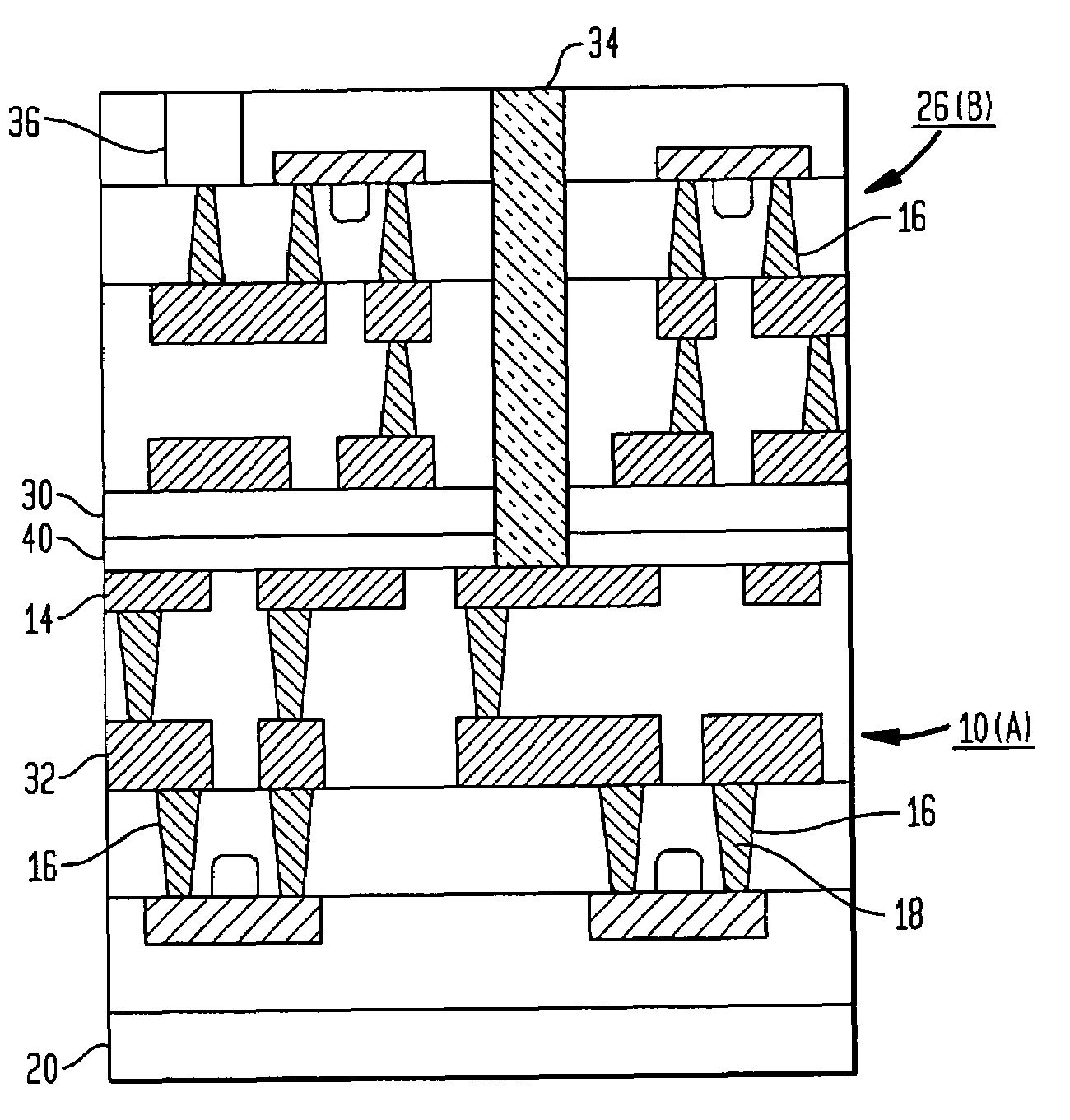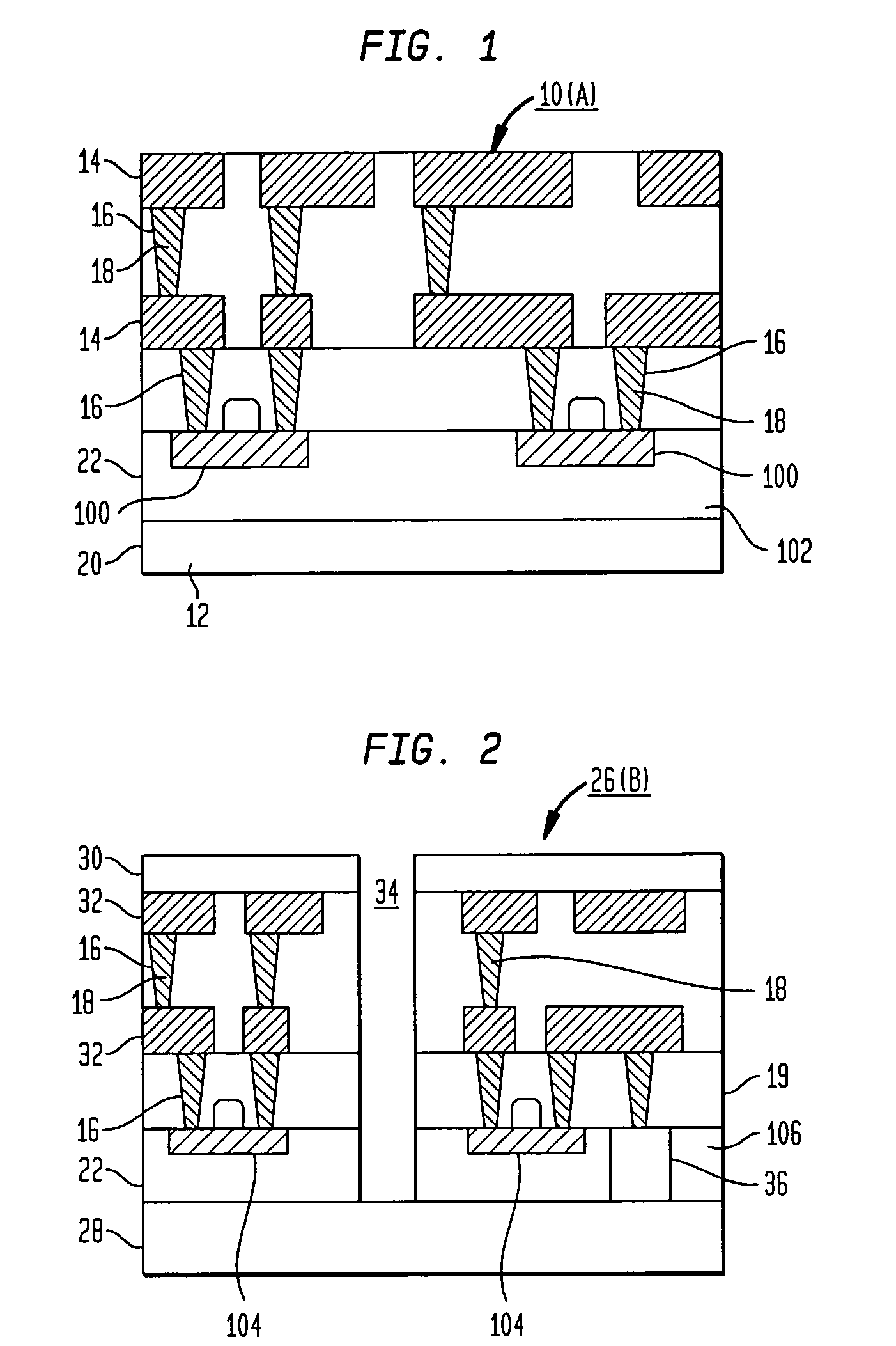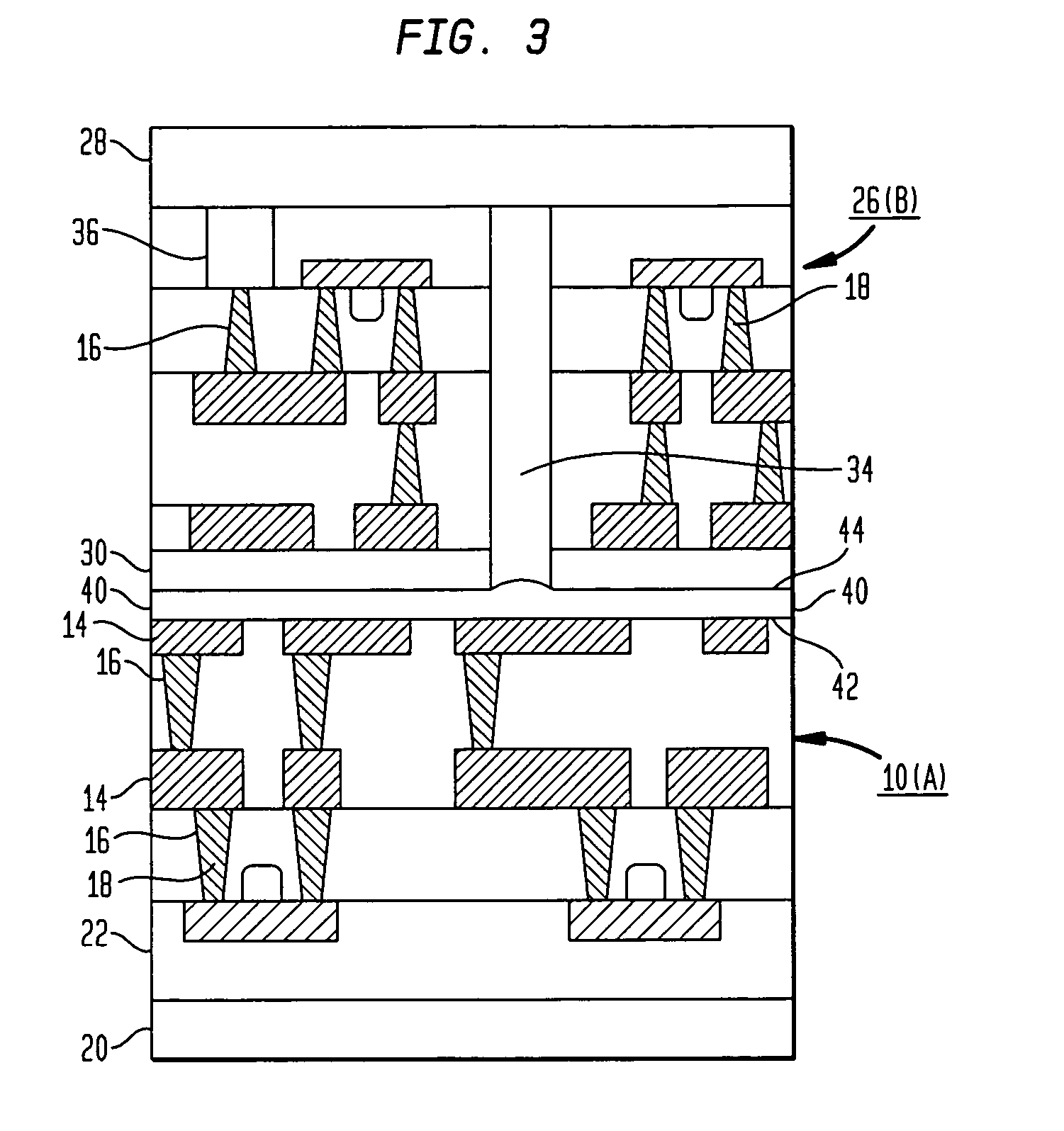Accessible chip stack and process of manufacturing thereof
a technology of integrated circuit chips and wafers, which is applied in the direction of electrical equipment, semiconductor devices, semiconductor/solid-state device details, etc., can solve the problem of not being able to disclose the fabrication and processing process of all chips, and achieve the effect of increasing output and maximizing the yield of processed chips
- Summary
- Abstract
- Description
- Claims
- Application Information
AI Technical Summary
Benefits of technology
Problems solved by technology
Method used
Image
Examples
Embodiment Construction
[0021]Referring in specific detail to the drawings, as shown in FIG. 1, there is provided a first base semiconductor Chip 10 (identified as A), which is arranged on a substrate, such as a planar wafer 12, and is provided with a plurality of metal levels 14, of which only two are illustrated in this particular embodiment, although additional levels and layers may be readily provided for multiple-level technologies. Also provided in base semiconductor Chip 10 are, for example, active devices including Field Effect Transistor (FET) gate electrodes 100 and active SOI regions 102.
[0022]This particular chip structure is in a wafer form, and includes interconnecting passages and vias 16 filled with electrically conductive material 18, as may be required by a specific technology. The chip is mounted on a handle 20 constituting a handling layer below a Buried Oxide (“BOX”) and Shallow Trench Isolation (“STI”) layer 22, and will remain permanently thereon. Hereby, the chip can be bulk, Si, SO...
PUM
 Login to View More
Login to View More Abstract
Description
Claims
Application Information
 Login to View More
Login to View More - R&D
- Intellectual Property
- Life Sciences
- Materials
- Tech Scout
- Unparalleled Data Quality
- Higher Quality Content
- 60% Fewer Hallucinations
Browse by: Latest US Patents, China's latest patents, Technical Efficacy Thesaurus, Application Domain, Technology Topic, Popular Technical Reports.
© 2025 PatSnap. All rights reserved.Legal|Privacy policy|Modern Slavery Act Transparency Statement|Sitemap|About US| Contact US: help@patsnap.com



